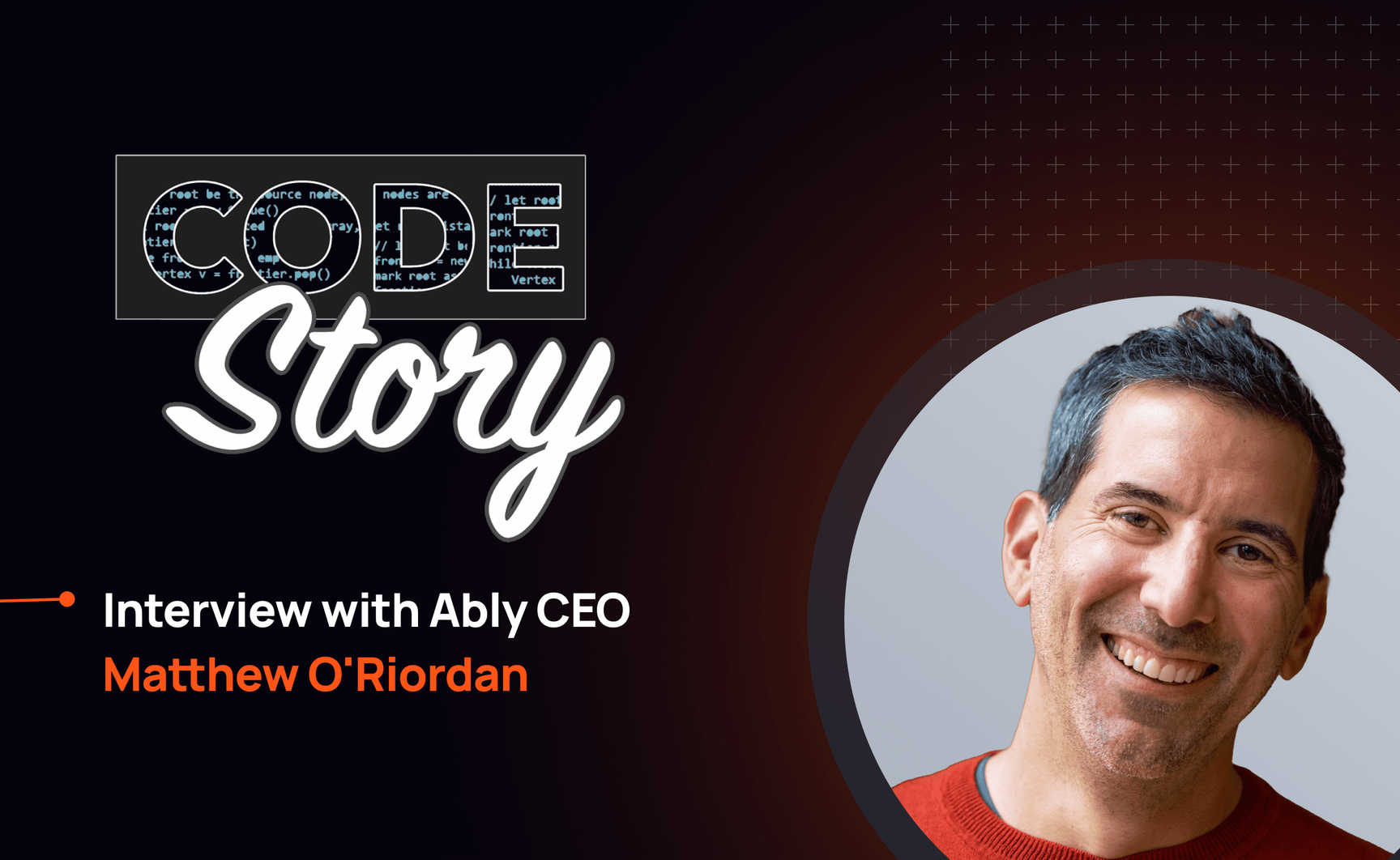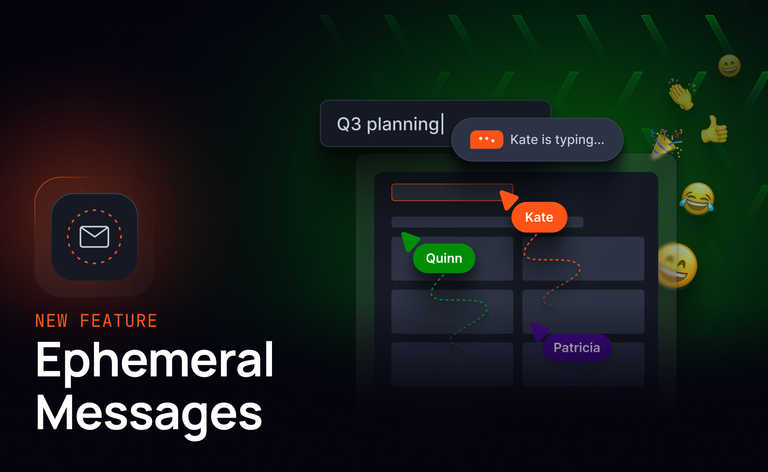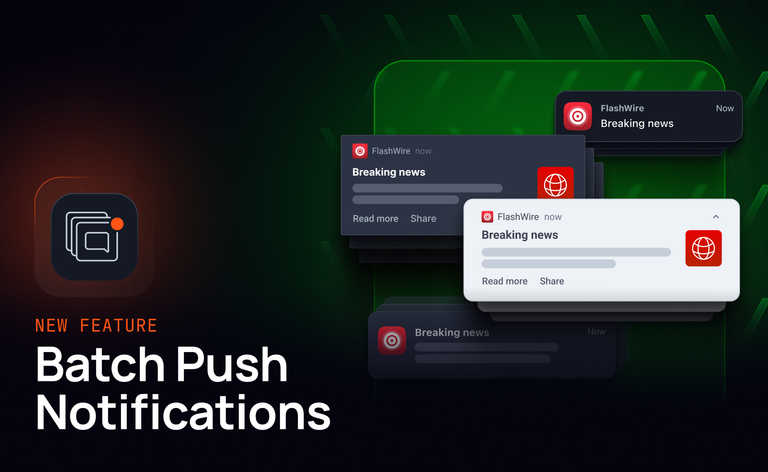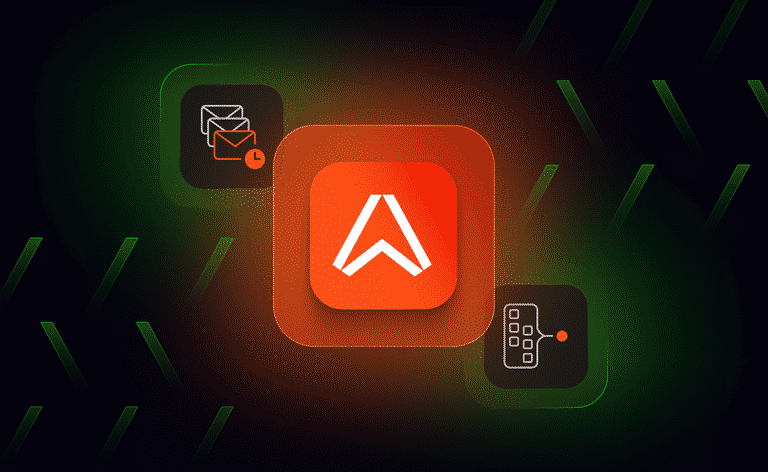Code Story is a podcast that invites tech leaders to reflect on their journeys, the products they’ve created, their successes, and their mistakes.
Our CEO Matthew O’Riordan recently spoke with host Noah Labhart to share more about Ably’s story and the lessons he’s learned along the way.
You can listen to the full episode here, but we’ve pulled out a few highlights below.
Founding Ably: Where did the idea come from?
Ably is a realtime experience platform, providing APIs and SDKs that help developers to build realtime applications, like chat, collaboration features, and notifications, quickly. Noah started the interview by asking how Ably came to be.
Matt explained how his interest in interactive and collaborative technologies had actually stemmed from building products for other potential business ventures, including a dating app and a backlog management tool. He said:
“What I found was that with everything I was building, my hypothesis was the more you can make a collaborative or shared experience, the more impact it would have.”
We’ve since seen this in action with the likes of Figma, and Miro but Matt identified Gmail as the first realtime collaborative experience – that is, an application that allowed users to co-work with others in realtime, without having to refresh the page.
“We wanted to build on these types of experience, giving developers a transport layer and a service that they could use to build any realtime experience on, and know it just works.”
What makes a realtime application successful?
For Matt, a true realtime experience has four things that make it successful:
- Low latency: For an experience to be realtime, latency needs to be kept below 100ms.
- Data integrity: Messages need to be delivered in the right order, and only once.
- Availability: Experiences need to be available all the time, wherever a user is based, no matter how many users are active.
- Dependability: Realtime systems either work or fail completely. If you can’t deliver on the promise of realtime, the whole experience is undermined.
“Performance of the system matters and it leads us to pretty complex problems. For example, you can’t deny the laws of physics. The time it takes for light to travel from Australia to the U.S. is more than a hundred milliseconds. So, you can't have the service in a single region, it's got to be globally distributed.”
And that’s why Ably exists:
“To give developers the infrastructure and APIs to build these [realtime experiences], without having to solve these hard problems.”
Scaling a startup: Four lessons learned along the way
As Noah and Matt uncovered more of the Ably story, Matt revealed some of the biggest lessons he’s learned since starting the business.
1. The (not-so) MVP
In Matt’s words, Ably is “the worst example of what a lean startup should be”. From joining forces to MVP, it took Matt and Co-Founder Paddy Byers three years to get Ably to market – the original goal had been nine months.
While the right decision for Ably, it’s not an approach Matt would recommend for other businesses.
“With hindsight, I think we made the right decisions but it would be hard to recommend anyone else follow a similar path.
“When we came into the market, there were other realtime solutions that existed. But they didn’t meet the needs I mentioned, latency, integrity, availability, and dependability. We realized that we needed to build something unique, something that was truly innovative.”
Following this, Matt and Paddy set about building a distributed, edge infrastructure. On reflection, Matt explained that they had underestimated the complexity involved but that taking more time to get it right, ultimately led them to build better technology that has become a critical part of tech stacks in companies like HubSpot and Tennis Australia.
2. The two components of any product roadmap
Once Ably was live, the focus was on how to deliver core features better than its competitors.
“There was nothing fundamentally wrong with the problems that others were trying to solve. [The solutions] just weren’t fit for purpose. So we were just going to do that better.”
As developers started using Ably, the focus switched and two things happened that shaped how Ably develops its product roadmap.
- Response to customer insight: Matt advocates for speaking to customers and understanding how they are solving problems - rather than taking requests for which API to build.
- Building your vision: Something Matt says Ably struggled with at first, but looking at where the industry is going and what you actually need to build next. For Ably, this was thinking about how companies can exchange and share realtime data with each other.
Matt explains how these two things can help teams prioritize what to build, and when.
“Now we have discipline around how we validate things, how you look at the market size, and we talk to customers and validate APIs before releasing them. …In the early days, it was a lot of instinct and looking at what problems other people were solving.
3. Balancing a hybrid GTM motion
Matt didn’t set out to scale a company, he set out to scale a product. Ably is still fundamentally a product-led company that sells to developers but after Series B, the go-to-market strategy changed inline with growth plans.
“We were PLG up until that point. We then created a sales-led motion and we tried to run the two side by side.”
For Matt, looking back, there were two problems with this approach:
1. Developer audiences aren’t that compatible with sales-led motions.
“Developers don’t want to be sold to, they want to buy. They’re happy to talk to salespeople but when they are ready, not when we go out to them.”
2. It created misalignment internally.
“What we missed was that it created conflict in the organization – if someone signs up, do you try to sell to them or do you try and take them through a developer motion of making them successful at building their app?”
For Matt, the answer is always to focus on helping developers succeed.
“Let them see the value in the product and everything else follows. It all flows very, very well. And it's what we built the business on.”
4. Scaling a team
Ably currently has over 70 employees, and has gone from having an almost exclusively engineering team to one with a broad set of skills and backgrounds – with a shared goal.
On scaling a team, Matt shared how the approach changes as you grow – in his case after Ably’s Series B fundraise.
“I remember the moment we signed the terms sheet, it hit me that I have to change modes as a CEO. I have to completely rethink what I do because now we need to scale an organization, not a platform.”
This change meant being more structured in hiring, and thinking about the types of people you need to hire as well as the skills they need to bring with them.
“We hire around things like our values internally. We really try to live and breathe it, they’re not something that lives on the wall.”
“There’s also this self-starter, entrepreneurial mindset that we find helps people succeed at Ably. If they can think about the tech but also think about customer needs, and driving an outcome.”
Advice for budding founders
Noah ended the podcast asking Matt what his advice he would give a young, enthusiastic entrepreneur.
Matt summarized his answer into three key points.
1. Do something you’re really interested in.
Don’t start a business just to make money, do something you have a genuine interest in. Building a business you care about makes everything else easier because you have the passion.
2. Find the right co-founders
You’ll spend more time with your Co-Founder than you will with most people. Matt explained how the right co-founder is someone who brings a different perspective, and that you can bounce ideas around with. The right co-founder should also be someone you are comfortable with as you’ll need to be able to have really difficult conversations with them.
3. Choose your investors wisely
While not as important for smaller investors, Matt’s advice is to choose larger investors carefully – especially the ones who will sit on the board. He discussed the importance of needing to know that you like them and trust them to have your best interests at heart. Also important is getting advice and input from people with different expertise and experience that can help you to see something differently.
Listen to the full podcast here.
About Ably
Ably is the scalable and five nines reliable middleware, used by developers at over 500 companies worldwide, to quickly build realtime applications - from collaborative experiences and live chat, to data broadcast and notifications. Supported by its globally distributed infrastructure, Ably offers 25 SDKs and partner integrations with technologies including Datadog, Kafka, and Vercel, that accelerate the delivery of realtime experiences.
Ably was recently recognized in the G2 2023 Summer Report with awards for Best Support, High Performer, and Highest User Adoption and featured in the Sifted B2B SaaS Rising 100.
Find out more about the Ably platform or try it for yourself and start building with a free account today.




